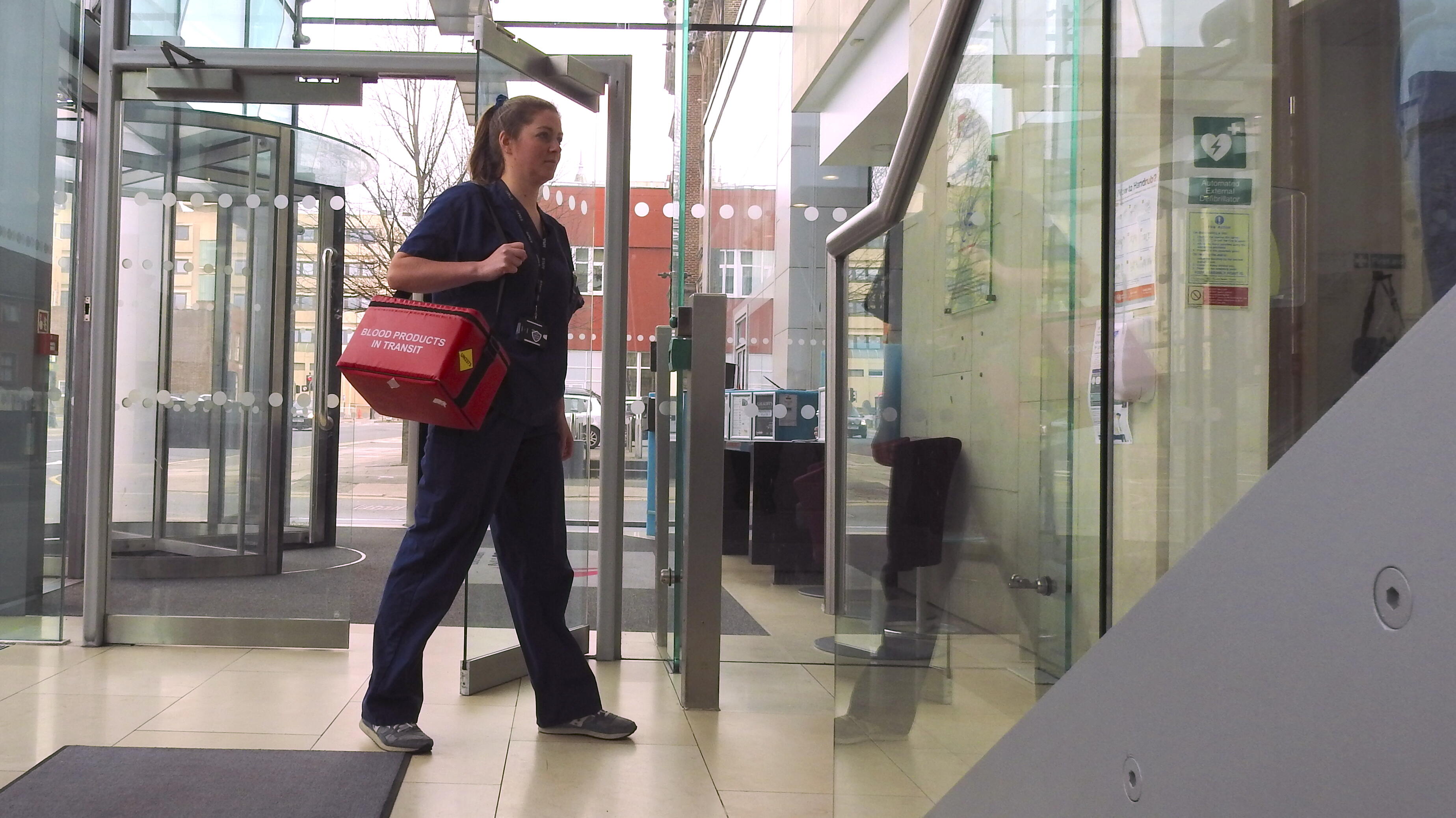
LSTM’s Respiratory Clinical Research Group and Pfizer Inc. are announcing the launch of two new studies to provide insights on the interaction between S. pneumoniae and SARS-CoV-2, which causes the 2019 pandemic coronavirus disease (COVID-19). In the coming days Pfizer is expected to finalize a research collaboration agreement with Liverpool to provide funding and in-kind laboratory testing support for this research.
The studies (SAFER study (SARS-CoV-2 Acquisition in Frontline Health Care Workers – Evaluation to Inform Response) and the FASTER study (Facilitating A SARS CoV-2 TEst for Rapid triage)) will help demonstrate whether patients infected with COVID-19 have a higher risk of also developing pneumococcal pneumonia and if having both infections leads to more severe disease and poorer outcomes.
LSTM’s Professor Daniela Ferreira said: “We are delighted to be working with Pfizer, combining our efforts to evaluate patient outcomes during this devastating pandemic. Our research expertise in respiratory infections means that we are perfectly placed to help answer some of the most important questions in relation to the host responses to the virus: which are why do some people get so much sicker than others with COVID-19? And what is the relationship between the virus, pneumococcal pneumonia, and severity of disease?”
The SAFER study will enroll 100 healthcare workers at the Royal Liverpool Hospital and examine rates of SARS-CoV-2 acquisition and dynamics of pneumococcal colonization. The FASTER study will recruit 400 patients from the infectious disease ward at the Royal Liverpool Hospital suspected of having coronavirus. Enrollment has already begun, and data are expected over the next few months.
Can some deaths from Coronavirus be attributed to secondary bacterial pneumonia?
According to the Centers for Disease Control and Prevention, viral infections such as influenza can make people more susceptible to bacterial pneumonia, particularly pneumococcal pneumonia.[i] Research has suggested that some of the deaths during the flu season are attributed to secondary bacterial pneumonia. The new studies – known as the SAFER study (SARS-CoV-2 Acquisition in Frontline Health Care Workers – Evaluation to Inform Response) and the FASTER study (Facilitating A SARS CoV-2 TEst for Rapid triage) – will help answer if the same is true with coronavirus.
Why do some Coronavirus patients get a mild infection while others are much more severe?
As the COVID-19 pandemic continues to unfold and medical researchers learn more about the disease, we still do not understand why some patients get a mild infection while others acquire more severe and even deadly diseases. Through these studies, we seek to learn if infection with S. pneumoniae may cause some of the negative outcomes, including death, that have been observed in the current pandemic. S. pneumoniae, in theory, could cause severe disease either through secondary bacterial pneumonias or by pneumococcus in the nose increasing the likelihood of a SARS-CoV-2 lower respiratory infection.
There is an urgent need to understand the interactions and dynamics of this novel coronavirus to provide important insights in pandemic planning, treatment of acutely ill patients, and the development of a future COVID-19 vaccine.
[i] CDC. Prevention Of Pneumococcal Infections Secondary To Seasonal And 2009 H1N1 Influenza https://www.cdc.gov/h1n1flu/vaccination/public/public_pneumococcal.htm
For all LSTM's COVID-19 related news, research updates, comments, blogs and fundraising appeal, click here